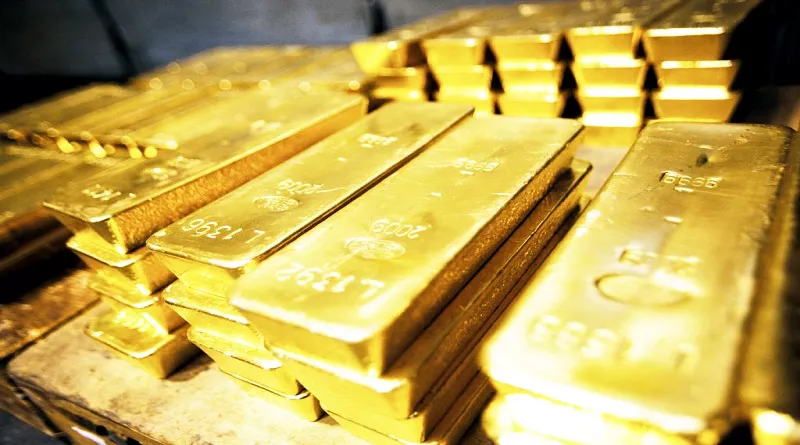Gold has held a special place in the hearts and vaults of investors and governments for centuries. Its status as a symbol of wealth and power dates back to ancient civilizations, and its role in the modern financial system has evolved significantly over time. In this article, we will delve into the multifaceted journey of gold in the financial world, from its historical significance to its contemporary relevance.
1. Gold in Historical Perspective
Gold’s allure is rooted in history. For thousands of years, it has been a medium of exchange, a store of value, and a symbol of prestige. Ancient civilizations such as the Egyptians and Greeks used gold coins as a form of currency. Its scarcity, durability, and malleability made it the perfect material for monetary transactions.
2. The Gold Standard Era
The 19th and early 20th centuries witnessed the peak of gold’s influence in the financial system. The gold standard, a system where the value of a country’s currency was directly linked to a specific amount of gold, prevailed. Countries held substantial gold reserves to back their currencies, ensuring stability in international trade. However, this system had its limitations, and it eventually crumbled during the economic turmoil of the 20th century.
3. The Post-Gold Standard World
In 1971, President Richard Nixon announced the suspension of the U.S. dollar’s convertibility into gold, effectively ending the gold standard. This marked a pivotal moment in the history of gold and the financial system. Countries transitioned to fiat currencies, which were not backed by physical assets but rather by the trust of the issuing government.
4. Gold as a Safe Haven
Following the collapse of the gold standard, gold assumed a different role in the financial system. It became a hedge against economic uncertainty and a safe haven asset. During times of crisis, such as the 2008 financial meltdown and the COVID-19 pandemic, investors flocked to gold as a store of value, driving up its price.
5. Gold in Investment Portfolios
Gold’s evolution continued as it gained recognition as an essential component of diversified investment portfolios. Investors allocate a portion of their assets to gold to reduce risk and enhance returns. Exchange-traded funds (ETFs) and other financial instruments made it easier for individuals and institutions to invest in gold without physically owning it.
6. Central Bank Reserves
Central banks continue to hold significant gold reserves. While gold no longer plays a primary role in the global monetary system, it serves as a form of international currency reserves. Central banks maintain gold holdings as a means of diversifying their reserve assets and enhancing financial stability.
7. Gold’s Role in International Trade
Gold’s influence in international trade has diminished, but it remains an essential asset in the global economy. Some countries still settle international trade transactions in gold, especially in regions with a lack of trust in fiat currencies. Additionally, gold is used as collateral in financial markets.
8. Technological Applications
Beyond its traditional roles, gold has found applications in various industries, from electronics to medicine. Its conductivity and resistance to corrosion make it indispensable in manufacturing, and its biocompatibility is valued in medical devices and treatments.
FAQs on Gold in the Modern Financial System
Q1. Is gold still considered a currency?
No, gold is no longer considered a primary currency in the modern financial system. It is not used for everyday transactions, and fiat currencies have replaced it in this regard.
Q2. Why do central banks hold gold?
Central banks hold gold as a form of reserve asset to diversify their holdings and maintain financial stability. Gold provides a hedge against currency devaluation and economic uncertainties.
Q3. How can individuals invest in gold?
Individuals can invest in gold through various means, including buying physical gold, investing in gold ETFs, purchasing gold mining stocks, or acquiring gold certificates. Each option has its pros and cons.
Q4. What role does gold play in times of economic crisis?
Gold often serves as a safe haven asset during economic crises. Investors turn to gold to preserve wealth when traditional investments, such as stocks and bonds, become more volatile.
Q5. Can gold make a comeback as a global currency?
While it’s unlikely that gold will return to its historical role as a global currency, it will continue to have significance as a store of value and a hedge against economic instability.
Q6. Are there any risks associated with investing in gold?
Yes, like any investment, gold carries risks. Its price can be volatile, and it may not provide regular income or dividends. It’s essential for investors to diversify their portfolios and understand the factors influencing gold prices.
Q7. How does gold impact the global economy today?
Gold plays a role in the global economy primarily as a store of value and a safe haven asset. Its impact on day-to-day transactions and central bank reserves has diminished but remains relevant.
Q8. What factors influence the price of gold?
Several factors affect the price of gold, including economic conditions, inflation, geopolitical events, and changes in investor sentiment. Supply and demand dynamics also play a significant role.
In conclusion, gold’s role in the modern financial system has evolved from a primary currency to a store of value, a safe haven asset, and a vital component of investment portfolios. While it may no longer be at the center of global monetary systems, its enduring appeal as a symbol of wealth and stability ensures its continued relevance in the financial world. Investors and central banks alike continue to recognize the unique qualities of gold, making it a valuable asset in an ever-changing economic landscape.

